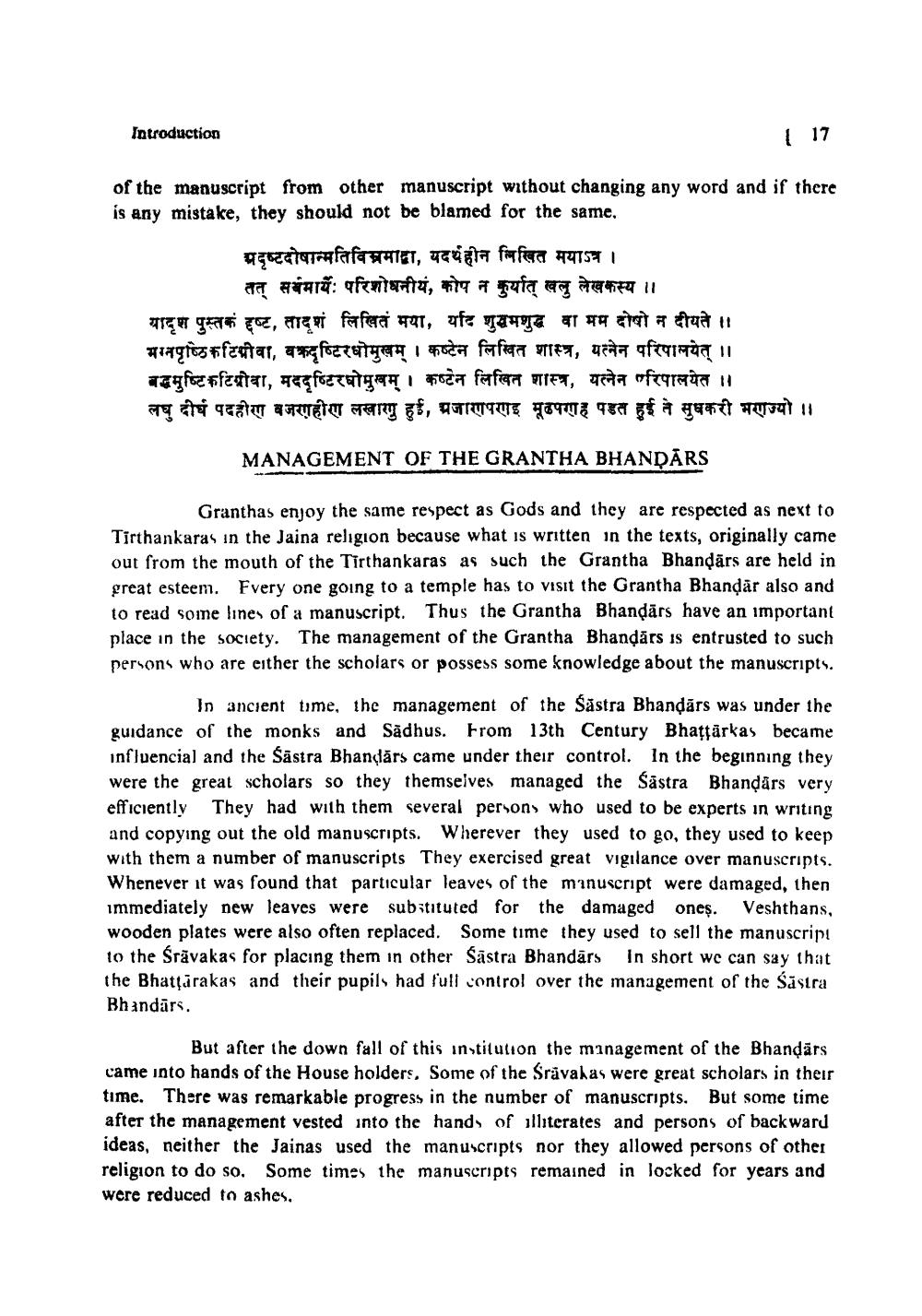________________
Tatroduction
117
of the manuscript from other manuscript without changing any word and if there is any mistake, they should not be blamed for the same,
__ प्रदृष्टदोषान्मतिविम्रमादा, यदर्थहीन लिखित मयात्र ।
तत् सर्वमार्यः परिशोधनीयं, कोप न कुर्यात् खलु लेखकस्य ।। यादृश पुस्तकं दृष्ट, तादृशं लिखितं मया, यदि शुसमशुद्ध वा मम दोषो न दीयते ।। भग्नपृष्ठिकटिग्रीवा, वक्रदृष्टिरधोमुखम् । कष्टेन लिखित शास्त्र, यत्नेन परिपालयेत् ।। बद्धमुष्टिकटिग्रीवा, मददृष्टिरघोमुखम् । कष्टेन लिखित शास्त्र, यत्नेन परिपालयेत ।। लघु दीर्घ पदहीण वजरणहीण लखारगु हुई, प्रजाणपणइ मूढपणह पडत हुई ते सुधकरी भणज्यो ।।
MANAGEMENT OF THE GRANTHA BHANDĀRS
Granthas enjoy the same respect as Gods and they are respected as next to Tirthankaras in the Jaina religion because what is written in the texts, originally came out from the mouth of the Tirthankaras as such the Grantha Bhandārs are held in great esteem. Fvery one going to a temple has to visit the Grantha Bhandar also and to read some lines of a manuscript. Thus the Grantha Bhandārs have an important place in the society. The management of the Grantha Bhandārs is entrusted to such persons who are either the scholars or possess some knowledge about the manuscripts.
In ancient time, the management of the Sastra Bhandārs was under the guidance of the monks and Sadhus. From 13th Century Bhatjärkas became influencial and the Sastra Bhandars came under their control. In the beginning they were the great scholars so they themselves managed the Sastra Bhandars very efficiently They had with them several persons who used to be experts in writing and copying out the old manuscripts. Wherever they used to go, they used to keep with them a number of manuscripts They exercised great vigilance over manuscripts. Whenever it was found that particular leaves of the manuscript were damaged, then immediately new leaves were substituted for the damaged ones. Veshthans, wooden plates were also often replaced. Some time they used to sell the manuscript to the Sravakas for placing them in other Sāstra Bhandārs in short we can say that the Bhattarakas and their pupils had full control over the management of the Sastra Bhandārs.
But after the down fall of this institution the management of the Bhandārs came into hands of the House holders. Some of the Sravakas were great scholars in their time. There was remarkable progress in the number of manuscripts. But some time after the management vested into the hands of illiterates and persons of backward ideas, neither the Jainas used the manuscripts nor they allowed persons of other religion to do so. Some times the manuscripts remained in locked for years and were reduced to ashes,




